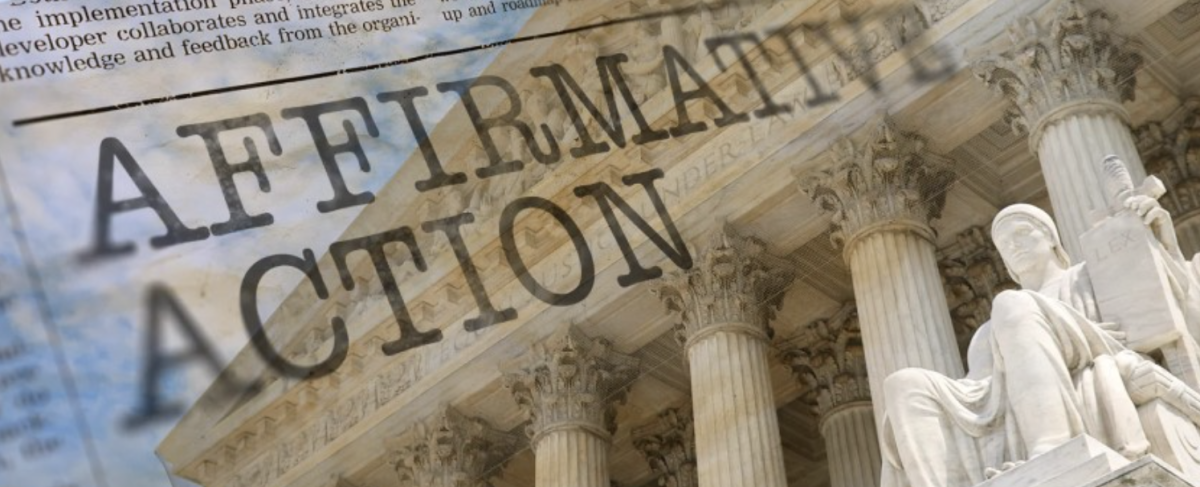Is Affirmative Action in College Admissions Fair? The Supreme Court says no, But what about Anselmians?
In a controversial decision over the summer, the Supreme Court recently ruled that affirmative action in college admissions violates the Constitution’s Equal Protection Clause of the Fourteenth Amendment, making it an unconstitutional act. The ruling did not come shockingly, as it is a conservative majority court, but has caused colleges across the country to relook at their admissions process and standards.
Affirmative action has been a topic of debate for decades, with conservative activists claiming that the process is a form of racial discrimination. This perspective argues for a colorblind approach to college admissions, where race is only considered in the context of how it “ influenced their character in a way that would have a concrete effect on the university,” as said by Chief Justice of the Supreme Court John Roberts.
Others feel differently about affirmative action, classifying it as a form of positive discrimination. In the Court’s dissenting opinion, Justice Sonia Sotomayor called the decision a regression of “decades of precedent and momentous progress, cementing “a superficial rule of colorblindness as a constitutional principle in an endemically segregated society.”
In an era of extreme party polarization, the role of affirmative action in college admissions is a divisive issue. In a statement on behalf of the College Republicans, Chairman Mac Connors recognized the nuances of this decision. He agrees with the Supreme Court, sharing that “they acted judiciously in striking down affirmative action in the Harvard and UNC cases.”
Connors continued, clarifying that while “it is important that we base decision making, especially in higher education on merit, [this] does not mean we should reduce everyone to a pile of merit without any personal story. In modern society, we tend to often relegate issues to a simple black and white answer, but that is not suitable for any polity. In short, without being contradictory or arcane in nature, we believe that people must be judged on their merits, but they are more than that.”
The extent to which this decision will impact diversity in college admissions remains unknown. When asked about the importance of affirmative action in Saint Anselm admissions, Vice President of Enrollment Steve Goetsch responded, “Our admissions team has always used a “holistic review” process when admitting and recruiting students to attend the Hilltop. Certainly, we will always follow the law and any ruling(s), but we do not see anything in the most recent ruling that would change the way we currently operate to recruit students.”
That being said, in an environment where the legality of diversity initiatives are questioned, Dr. Ande Diaz, the College’s Chief Diversity Officer, reminds us that “a diverse student body is a more compelling interest today than ever before – not just for an excellent learning environment, but also for a pipeline into graduate programs in everything from the legal field to the medical field and ultimately for a just and healthy democracy.” Dr. Diaz feels that following this decision, her role at Saint Anselm is to both clarify that Saint Anselm admissions is unaffected by this ruling, and “reassure the community that President Favazza’s commitment to a diverse and inclusive learning community does not waiver.”
Saint Anselm actively encourages an open dialogue on this topic beyond black-and-white terms and partisan lines. Next week, The Center of Ethics and Society is hosting a Student-Faculty Discussion, “Thinking about Affirmative Action,” led by Professor Bob Anderson of the philosophy department. While colleges around the country will have their admissions process affected by this decision, Saint Anselm College looks forward to continuing to admit coveted students in a very competitive admissions environment.


